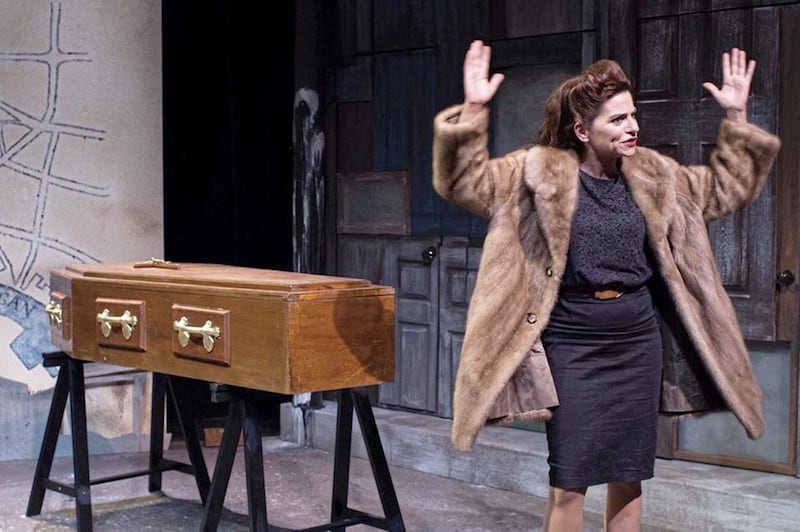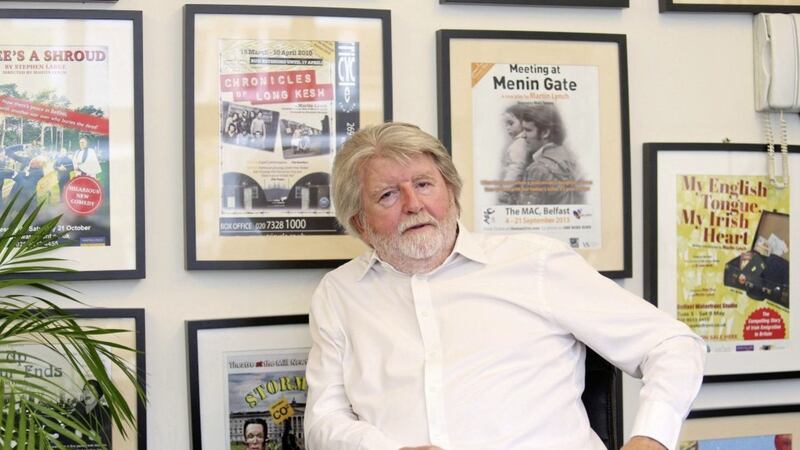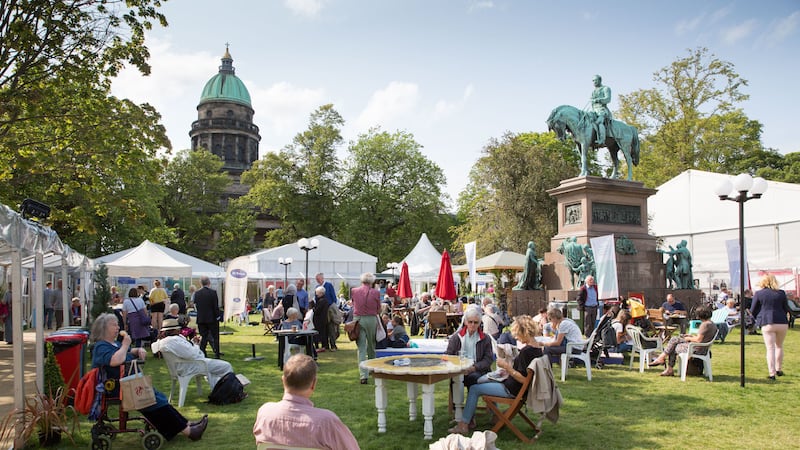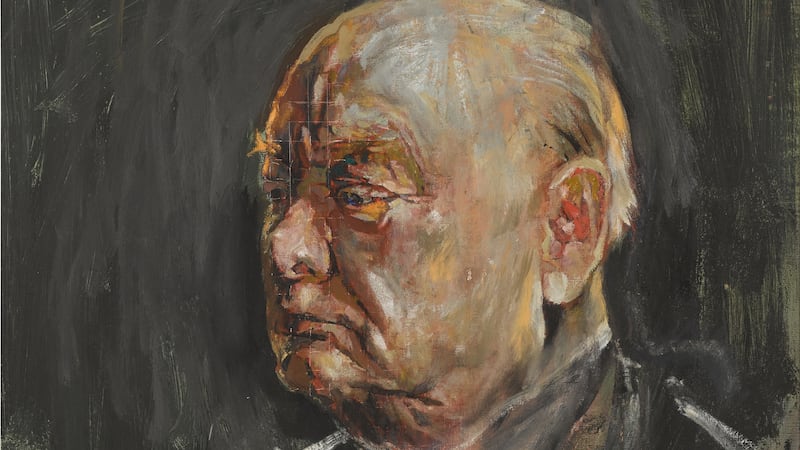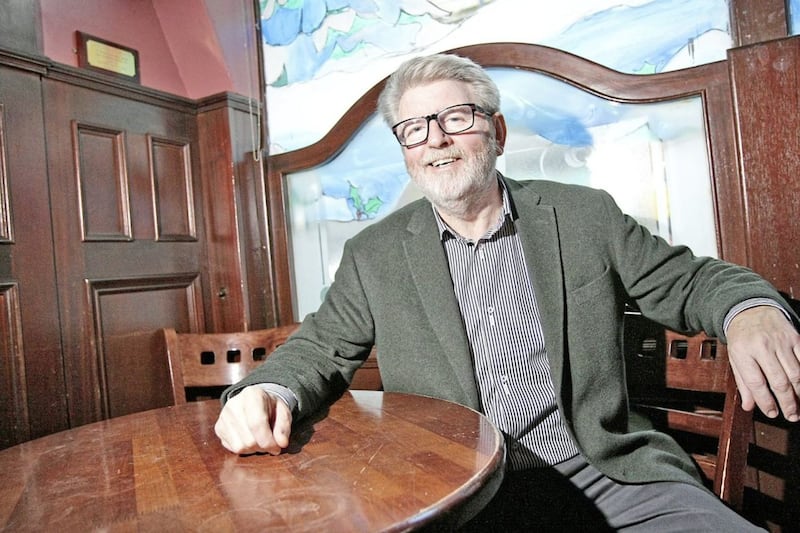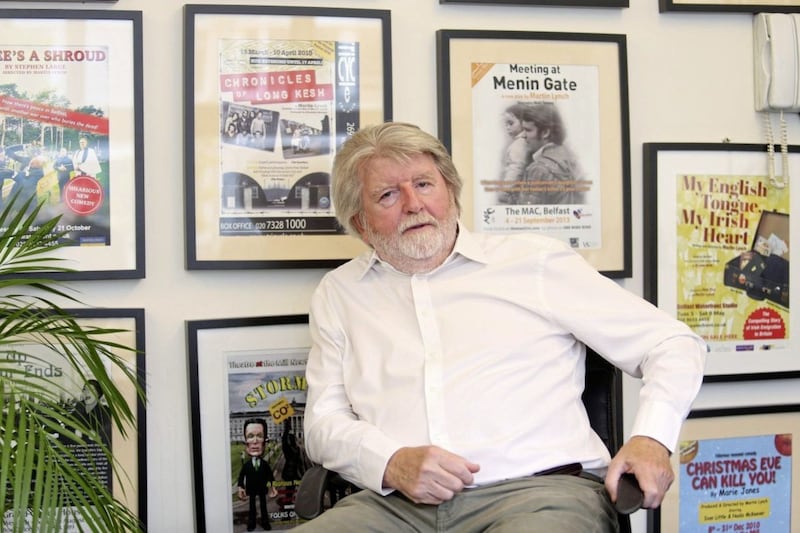WHEN it comes to staging new socially concious productions that people actually turn out to see, there aren't many local playwrights with a better track record than Martin Lynch.
From his early work Dockers, the docklands-inspired play which attracted a working class audience to Belfast's Lyric Theatre for the first time in the early 1980s, to more recent endeavours like last year's acclaimed Northern Ireland civil rights movement-themed show We'll Walk Hand In Hand, over the past 40 years Lynch (68) has repeatedly brought stories from working class communities to the stage in a compelling manner.
The latter play was developed in association with local community groups by the Belfast playwright's Green Shoot Productions (GSP), which is "dedicated to commissioning and producing new writing for the stage reflecting the voices of the population of Northern Ireland".
Founded in 2002, GSP exists as a separate entity to Lynch's more commercially minded GBL Productions, the company behind stage hits like Hurricane, The History of The Troubles (accordin' to My Da) and 50 Shades of Red, White & Blue, as well as new show The Miami Showband Story which opens at Grand Opera House Belfast this week.
However, despite Green Shoot's other successes including the international hit Chronicles of Long Kesh, the Brenda Murphy-penned Two Sore Legs, Sam Millar's Brothers In Arms and Lynch's own Meeting at Menin Gate, the production company is now facing closure, Lynch says, a situation he blames squarely on repeated rejection by the Arts Council of Northern Ireland (ACNI) of its funding applications.
With no funding granted for 2019/20, Green Shoot projects hanging in the balance include a play based on the life of Guildford Four man Gerry Conlon co-written by Lynch and journalist Richard O'Rawe (author of In The Name of The Son: The Gerry Conlon Story), a new one-woman play written by Derry Girls star Tara-Lynne O'Neill and a new play from acclaimed playwright Alice Malseed informed by stories from the residents of Tigers Bay – all designed to be able to tour in 'community venues' alongside traditional theatres – as well as a proposed Green Shoot in The Community project based in Newtownabbey's Rathcoole housing estate.
"I don't know what to do to get money off the Arts Council," says a clearly exasperated Lynch, who believes that GSP has been meeting all the criteria for ACNI funding, in particular its stated strategic aim of reaching out to working-class audiences and the requirement that funding applicants include a 'community dimension' to their proposals.
"In all the Arts Council's aims and objectives and strategy documents, they place great emphasis on the 'hard to reach' communities, ie the people who don't go to the theatre.
"In every survey conducted in the last 40 years in UK or Ireland, it's been pretty much the same statistics: 28 per cent of the population go to 'live arts performances', the other 72 per cent do not. And the 28 per cent who do go are from the 'ABC' communities – the middle classes.
"The working classes just don't go the theatre. Green Shoot was set up to do that. My life's work in the theatre is to write plays that come from the working class and then are told back to them. It's who I am and it's what I do.
"In terms of bringing working class audiences into the theatre, I think I have been as good if not more significant than most other theatre companies."
Established in 2002, GSP initially utilised the ACNI Lottery Funding Programme ("which is literally a lottery whether you get it or not," says Lynch) to help fund its work before deciding to apply to the Arts Council's Annual Funding Programme.
"Annual funding is kind of the Holy Grail; that's where you get your staff costs and your administration costs [covered] and you also get money for the project," Lynch explains.
"We eventually got on Annual Funding and that lasted for three years. Two years ago [ACNI] took us off again and we were back to Lottery Funding. And in our last two applications for our Lottery Funding, we've been turned down."
Green Shoot Productions employs one part-time administrator and one part-time development worker, with Lynch choosing to forfeit his £7,000 salary when it lost Annual Funding. According to him, the average play costs "between £70k to £90k" to put on.

Figures supplied by GSP show they secured ACNI Annual Funding of £55,896 for 2015/16, from which they generated turnover of £200,850. In 2016/17, funding of £50,669 resulted in turnover of £193,264, while for GSP's final year of ACNI Annual Funding in 2017/18, their award of £47,896 facilitated turnover of £205,816 – a whopping 430 per cent leverage, the majority of which GSP plumbed back into the arts sector via spending on 'front line services and artists', according to Lynch.
This means, he says, that, should GSP cease to exist, the arts sector could lose leveraged funding of close to £150,000 per year on average, along with GSP's average annual audience of nearly 6,000 people largely drawn from the socio-economic backgrounds the ACNI seeks to access/support.
"I don't want to take a penny off any of the other theatre companies whose funding hasn't been cut," Lynch tells me. "They are all good companies doing good work – but none of them are about attracting working class audiences. In fact, they probably attract your normal 'ABC' audiences.
"What compounds the problem is that the only other company that attracts large working-class audiences is Brassneck up in west Belfast, run by Tony Devlin – and he can't even get on the Annual Funding. He relies on Lottery Project Funding, and sometimes he gets it and sometimes he doesn't.
"So the Arts Council have this strategy aim to attract the 'hard to reach' audiences, but the two companies in Belfast who do it struggle to get funding from them."
Ironically, Lynch suspects that Green Shoot may actually be a victim of its own past successes and that their consistently good performance at the box office may now have led to a 'fend for yourselves' mentality.
"That is madness, because we are now at the point of closure," he says. "Taking us off the Annual Funding, they're telling us something is radically wrong with us and how they view us. And then to compound that by not giving you any Lottery project funding for our last two shows is real 'nails in the coffin' stuff."
Lynch says he has had no luck in securing an answer from ACNI as to why his company has not been successful in gaining funding.
"We have continuously asked the Arts Council to meet us and they have refused point-blank. Yet they continue to meet 'new clients' to find out who they are and what they're about," he says.
When The Irish News contacted ACNI for comment, they provided the following response via email:
"The Arts Council most recently considered an application from Green Shoot Productions for Lottery Project Funding. The total funds available for this were £1.1 million.
"We received 61 applications requesting over £2.3 million and given the funds available, it was not possible to fund every application. Green Shoot Productions has requested a funding review and it would be inappropriate for the Arts Council to comment further."
The statement has done little to allieviate Lynch's concerns.
The playwright concludes: "To fulfil their strategic aims, [the Arts Council] should be banging down our door and Brassneck's door saying 'what can we give you to bring in working class audiences?'
"But, instead, they cut our funds."
